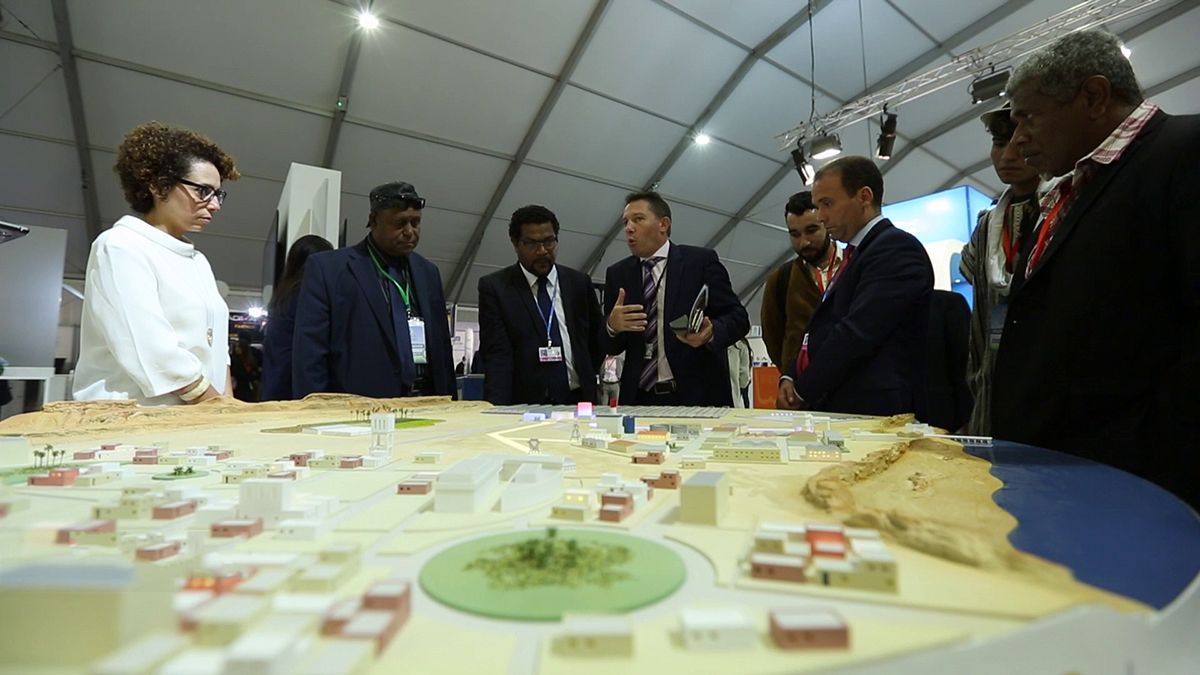How can we ensure sustainable water management to meet the growing demand from industry and agriculture? What are the climate risks related to water?
Water management remains at the heart of discussions at COP22 in Marrakech.
Climate change has a direct impact on natural resources, ecosystems and societies. The water sector is one of the most affected, as observations and projections by scientific experts have shown. That is why the International Office for Water has stepped in to manage this resource, waste and environmental protection.
The first ever World Water Action day took place at #COP22. Watch the growing #ClimateActionpic.twitter.com/NArdz8bhrm
— UN Climate Action (@UNFCCC) November 10, 2016
The first ever World Water action day aimed to highlight the water sector as a provider of solutions for implementing the Paris Agreement. Guaranteeing safe access to water means ensuring safety in food security, human health, energy production, industrial productivity, and biodiversity.
“We are promoting water issues all around the world, and we were responsible after five years of lobbing to pass water as a human right from the United Nations,” Dogan Altinbilek Vice President, World Water Council, told Euronews. “Seven hundred and eighty million people who are living in Asia, Africa and some of the other remote places in the world as a priority because these people do not have access to water to hygiene, toilets, they are earning less than one dollar a day.”
“This is the first time in the history of COP that we are going to talk about water and where water has an essential place,” said Loïc Fauchon, Water Council Honorary President. “It means that we will discuss adaptation over the 15 days. How we can find concrete measures to help the poorest countries, and solutions to help them adapt to these changes.”
Day 3 at the #COP22 was all about water! Follow our daily blog live from the climate conference: https://t.co/IFB6tzbW7Z#GlobalGoalspic.twitter.com/y1XegfaCkE
— Global Goals (@GlobalGoalsUN) November 9, 2016
Renewable Energy
A debate took place on Renewable Energy: Reducing Carbon Emissions.” Among the speakers was Nathan Hultman, director of the University of Maryland’s sustainable development department. Hultman is also a former adviser on environmental issues to President Barack Obama.
“There is a very major deployment of solar and wind energy in Morocco, there is massive deployments of renewable energy in Latin America and particular in Brazil and Mexico and couple of other countries. All of these together have been showing not only in their own region but also globally what countries can do when they put minds to it and identify what they can do with their own domestic resources.”
Without safe water & sanitation the lives of millions of children are at risk. #WaterIsLife, so let’s act NOW on #climatechange! #COP22pic.twitter.com/Eq8pRtnowy
— UNICEF (@UNICEF) November 9, 2016
The Council for Arab Relations with Latin America and the Caribbean (CARLAC)
“This conference highlighted the common action points between the Arab world and Latin America in terms of renewable energies,” CARLAC CFO Mohamed Dekkak told Euronews. “It also discussed obstacles at the legislative level and financing projects of renewable energy in these two regions of the world.”
COP22 week one
The first week of the United Nations Climate Conference in Marrakech focused mainly on drawing up a roadmap for implementing the Paris Agreement over the months and years to come.
Managing #water resources is critical if our society wants to successfully mitigate the effects of #climatechange. #Film4Climate#COP22pic.twitter.com/LLOu00sDb8
— Global Goals (@GlobalGoalsUN) November 9, 2016
Did you know that 160 million children live in extreme drought zones? Let's change that. #COP22pic.twitter.com/A93ti5k7Or
— UNICEF Water (@UNICEFwater) November 8, 2016
